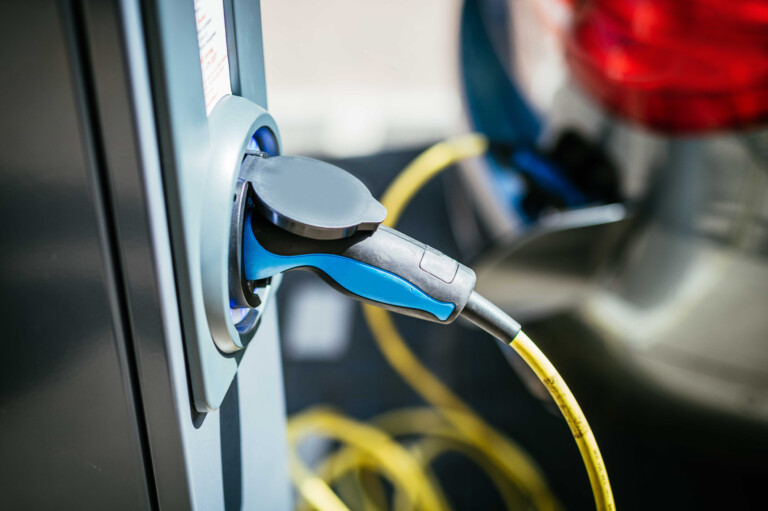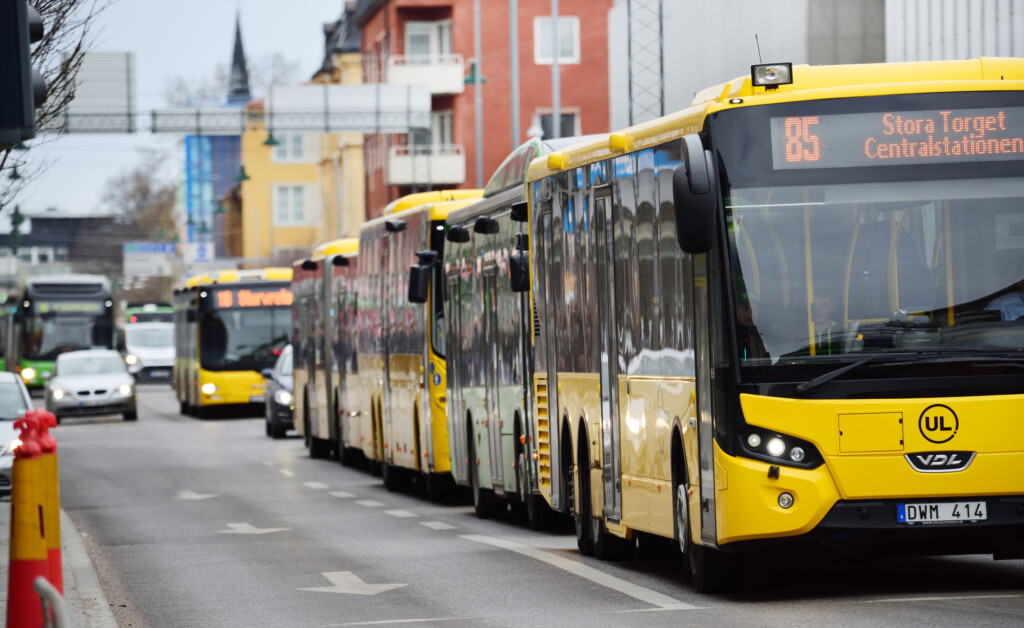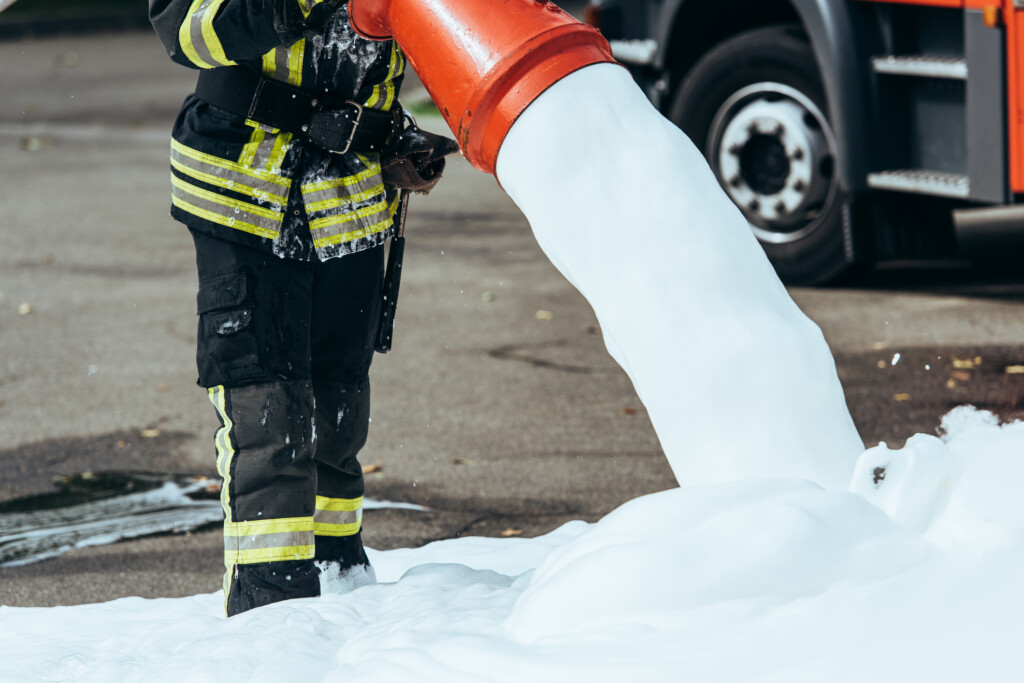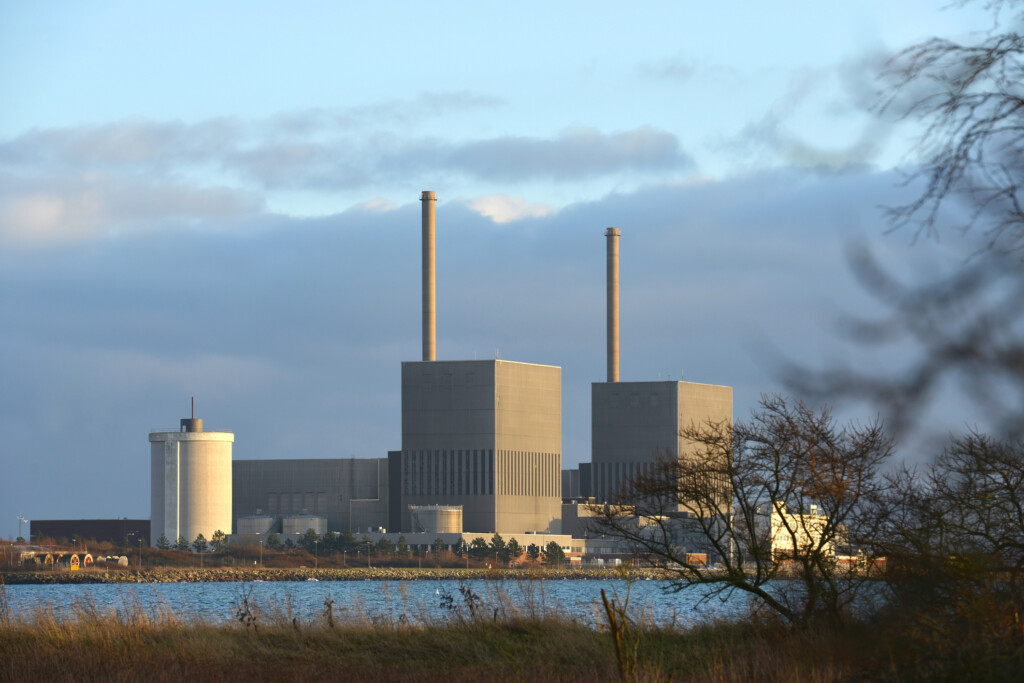Industry & Energy
“Big, empty buses aren’t good from an environmental perspective”
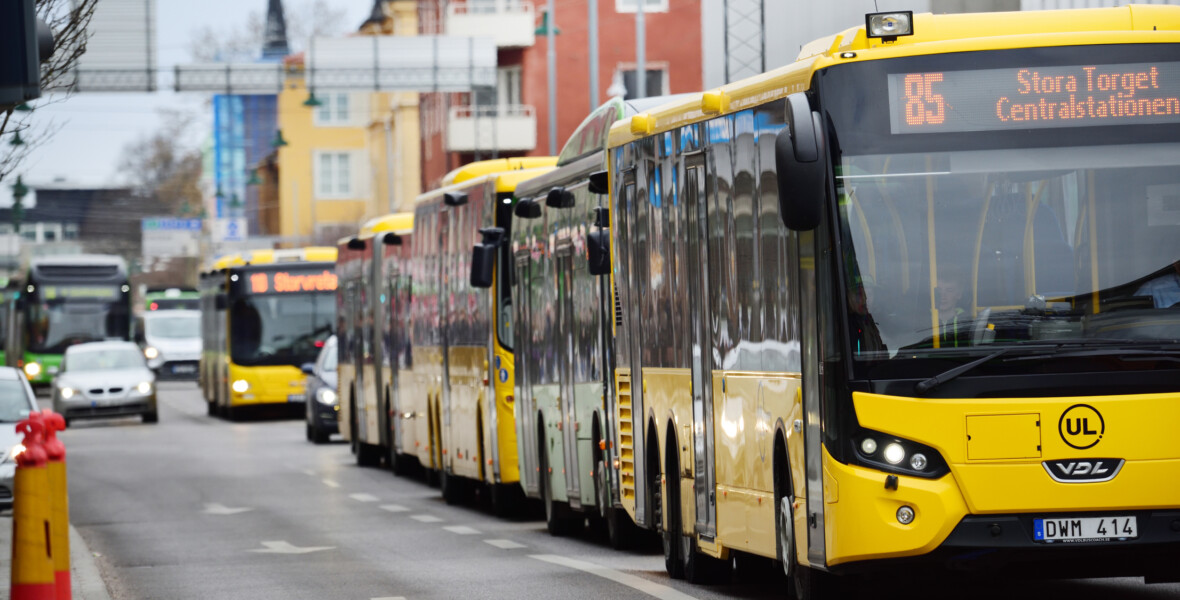
Public transport faces several challenges, and how the industry handles them will have a major impact on the climate transition. Electrification of the vehicle fleet will be costly. Meanwhile, passenger numbers have only just rebounded from historic lows during the pandemic.
Subscribe to Extrakt newsletter!
Läs mer
Stay up to date! Get the knowledge, ideas and new solutions for a sustainable society.
Personal data is stored only for the mailing of Extrakt newsletters and information related to Extrakt’s operations. You can cancel the newsletter at any time, which means you will no longer receive any emails from us
Public transport took the lead in the transition of the transport sector through an early switch to renewable fuels. And now comes the next step: electrification.
“Now comes the major task: we have to change systems. Doing so will further reduce climate impact, but it requires large investments,” says Maria Xylia, senior researcher at Stockholm Environment Institute (SEI).

She is leading a recently launched research project in search of solutions for a range of challenges facing public transport. The industry plays a key role in the climate transition. It needs to invest in technological development to reduce the climate footprint of the vehicle fleet and in initiatives that make public transport more attractive to passengers, so that more people opt to leave their car parked.
Meanwhile, Europe’s evolving security situation has raised questions about the robustness of public transport in the event of a crisis.
“Public transport is essential to society, and it must function during power outages, data breaches and extreme weather. Public transport is important for all of society, but perhaps especially for people who can’t afford to buy and drive a car,” says Maria Xylia.
Mapping the rate of electrification
For the project, the researchers plan to gather various stakeholders, including public transport operators from different regions and the relevant authorities, to discuss how to create a public transport system that is robust, attractive and environmentally sustainable.
The researchers will also track the investments made to date by regional public transport companies as they work for electrification.
“This information has yet to be compiled, but it’s important for us to be able to show what more needs to be done,” says Maria Xylia.
Setbacks from the pandemic
Together, the Swedish Public Transport Association and the bus and train industry groups Sveriges Bussföretag and Tågföretagen have set a goal for 40 per cent of all motorised travel on land to be by public transport by 2030. In 2019, before the pandemic, the figure was up to 32 per cent, but it fell to 20 per cent in 2021.
According to the latest figures, 31 per cent of travel was by public transport in 2023. In other words, the industry is back on track to meet the 2030 target, but Maria Xylia believes that getting there will require additional initiatives to make public transport an attractive option.
“You need to offer a flexible and effective transport system. Digitalisation also creates opportunities for new solutions for the ticket system, which can make things easier for passengers,” she says.
“Ticket prices are not what matter most.”
Reducing the price of tickets is often brought up in discussions on how to increase travel via public transport.
“Some European cities and countries are trying out free public transport, and of course, the fare matters. But one of our research projects actually shows that what matters most to passengers is reliability, punctuality and physical accessibility, and I think there is work to be done in those areas,” says Maria Xylia.
She believes the transition to electric vehicles is an opportunity to think outside the box and find new solutions that benefit passengers as well as the climate. For example, she would gladly see more discussions about options for using different kinds of vehicles depending on the number of passengers on a given route.
“Big, empty buses aren’t good from an environmental perspective.”
